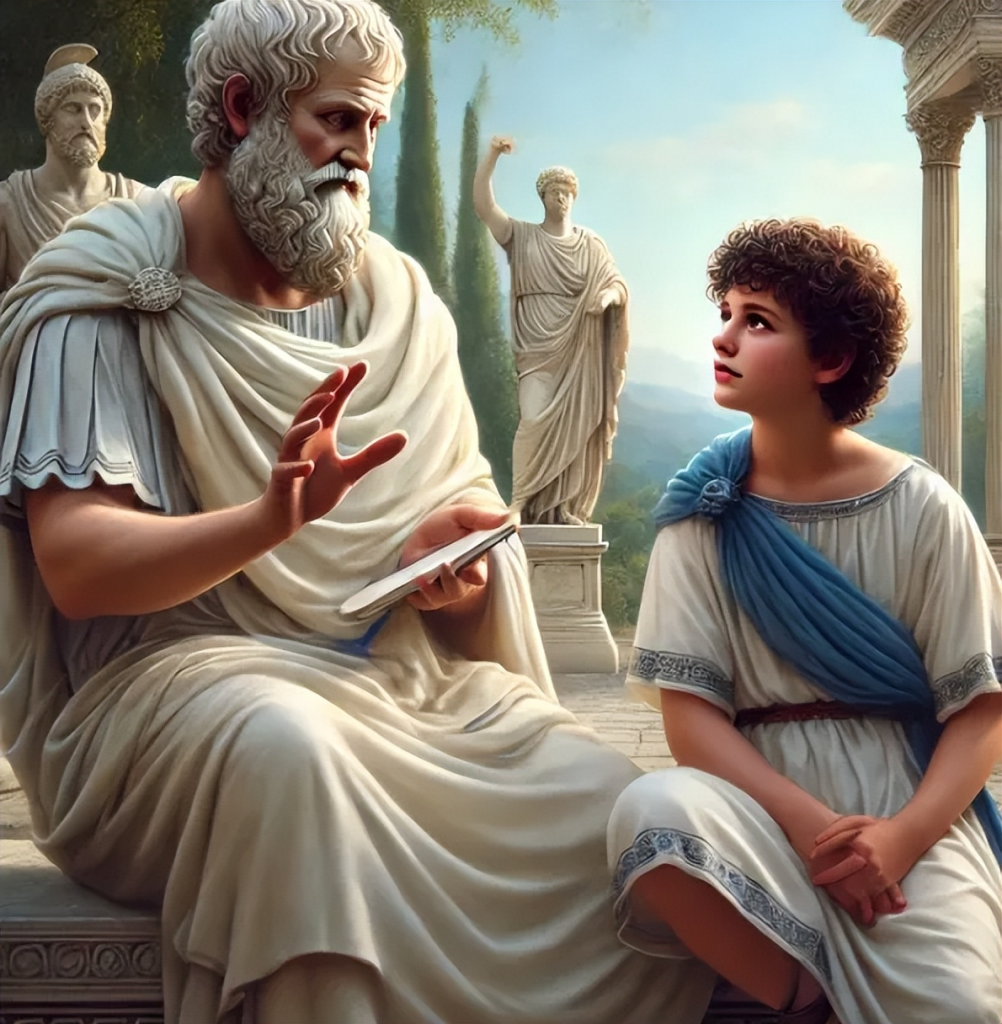Alexander the Great is known as one of the most brilliant military leaders and visionary rulers in history, but what made him so exceptional? Was it his natural genius, or was it the education and mentors who shaped his path? In this article, we’ll dive into the fascinating early years of Alexander, exploring how the unique combination of military, intellectual, and moral education set him on a course that would forever change the world.
A Rigorous Education from the Start
From a young age, Alexander’s education was nothing short of intense. As the son of King Philip II of Macedon and Queen Olympias, Alexander was expected to be more than just a ruler. His education began under the tutelage of a teacher from Epirus, who happened to share a name with the famous Spartan king, Leonidas. This teacher was no ordinary educator – he set strict rules for young Alexander, such as limited meals and demanding physical exercises. These lessons in discipline and endurance would play a crucial role in shaping the future conqueror’s formidable willpower.
Leonidas also taught Alexander the importance of simplicity, insisting that he refrain from indulging in luxuries before achieving greatness. His advice was clear: “Don’t enjoy before you succeed.” This tough-love approach helped Alexander develop both physical toughness and a mental resilience that would serve him in his military campaigns.
The Homeric Influence
Alexander’s second tutor, Lysimachus, brought a different kind of wisdom to the table. While he was less stringent, Lysimachus still imparted vital knowledge. He taught Alexander to read and write Greek, focusing particularly on the Iliad by Homer. The Iliad was more than just a text for Alexander – it became his guidebook to life. The tales of Achilles’ heroic feats resonated deeply with him, instilling a sense of destiny and excellence.
Alexander saw himself as a modern-day Achilles, and throughout his campaigns, he mimicked the Greek hero’s valor and sense of honor. Even when he faced great difficulties, he often drew inspiration from the epic, seeking to live up to the ideal of the warrior-king, much like the legendary Achilles. This connection to Homer’s heroes was so strong that, during his invasion of Asia, Alexander visited the ancient city of Troy to offer sacrifices to the fallen warriors of the Trojan War.
Aristotle’s Influence: The Intellectual Giant
While Alexander had many teachers, none had as lasting an impact as Aristotle, the renowned philosopher who was invited by King Philip to tutor his son around 343 BCE. Aristotle’s teachings were a game-changer for Alexander, providing him with not just the tools of warfare but also an intellectual framework to explore the world.
Under Aristotle’s guidance, Alexander developed a deep curiosity about nature, science, and philosophy. He became fascinated with biology and took scientists and explorers with him on his military campaigns to collect plant and animal specimens from the far corners of the known world. This thirst for knowledge not only shaped his leadership style but also his appreciation for the diverse cultures and environments he encountered during his conquests.
A Balanced Education for a Balanced Ruler
Alexander’s education was not limited to academics and physical prowess. He was also trained in oratory, logic, and mathematics, essential tools for a leader in ancient Greece. The ability to persuade and inspire through speech was a key aspect of Greek society, and Alexander mastered this skill. He was not just a military genius but also a master of communication, able to rally his troops with speeches that stirred their hearts and minds.
Mathematics, too, played a crucial role in Alexander’s education. From calculating the logistics of a military campaign to managing resources and devising battle strategies, math was integral to his success. His education, therefore, combined intellectual depth with practical military expertise, ensuring he could outthink and outmaneuver his enemies at every turn.
The Legacy of Alexander’s Education

The impact of Alexander’s education is clear not only in his military achievements but also in how he ruled. His ability to blend military strategy with cultural diplomacy, his interest in science, and his drive for personal excellence can all be traced back to the lessons he learned in his youth.
Even today, Alexander the Great’s approach to leadership, education, and conquest continues to inspire. His life is a testament to the power of a well-rounded education – one that nurtures both the mind and the body, preparing individuals to tackle the challenges of leadership head-on.
In modern times, we can draw parallels between Alexander’s approach to education and the value of interdisciplinary learning in today’s world. Whether in the military, business, or technology, leaders who combine intellectual curiosity with practical skills tend to stand out. Alexander’s education reminds us that knowledge is power, and that a holistic approach to learning can create the kind of leaders who change the course of history.


No comments yet.